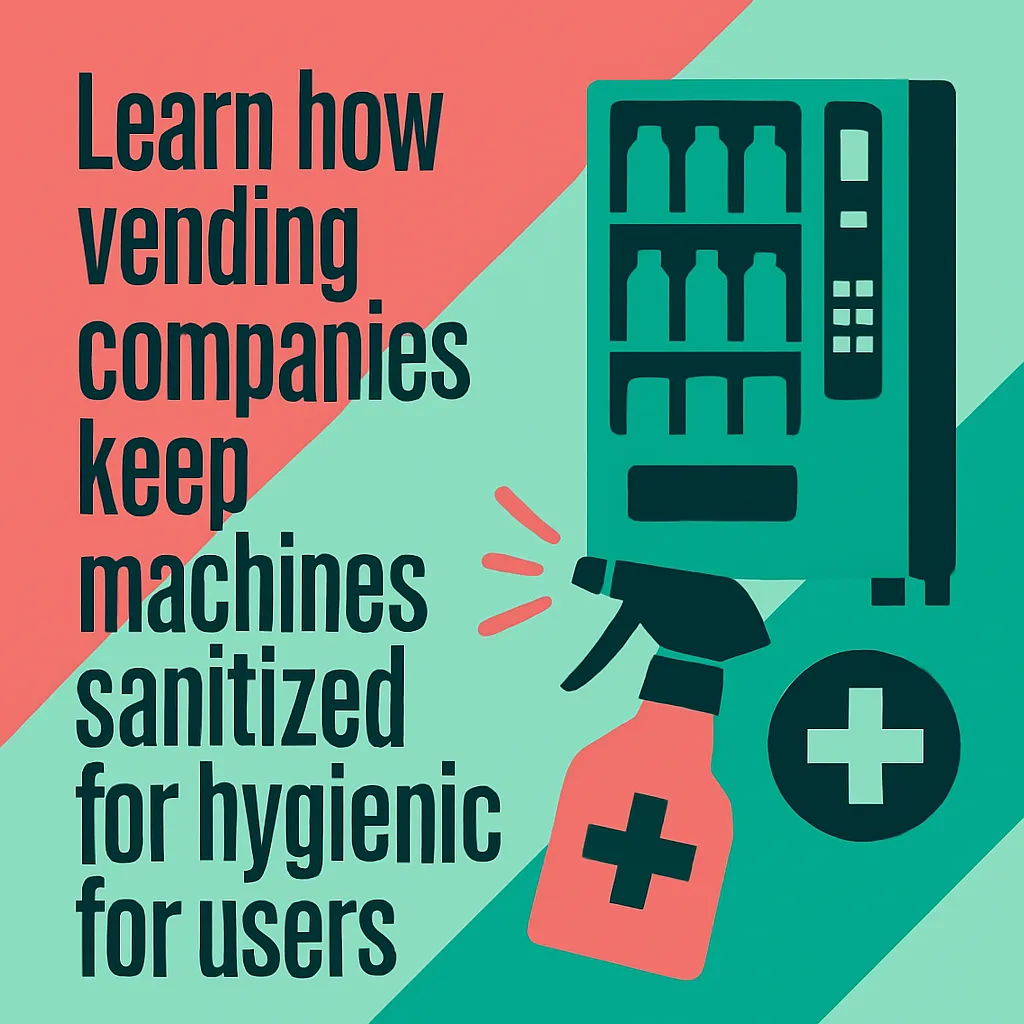How Are Vending Machines Cleaned?
Learn how vending companies keep machines sanitized and hygienic for users.
Back to Vending FAQs ResourcesLearn how vending companies keep machines sanitized and hygienic for users.
Back to Vending FAQs ResourcesMaintaining a high standard of cleanliness is crucial for vending machines, ensuring safe and pleasant experiences for every user. Operators follow strict protocols to sanitize both internal components and external touchpoints.
![]() Regular sanitization of all food and beverage contact surfaces
Regular sanitization of all food and beverage contact surfaces
![]() Disinfection of high-touch areas like keypads and dispense doors
Disinfection of high-touch areas like keypads and dispense doors
![]() Proactive measures to prevent pests and maintain machine integrity
Proactive measures to prevent pests and maintain machine integrity

Maintaining hygienic vending machines is paramount for consumer trust and product safety. Effective cleaning goes beyond a quick wipe-down; it involves a systematic process to ensure every contact point, both visible and internal, meets rigorous standards. This process is integral to the overall quality and safety of vending services.
Vending machine operators typically adhere to a strict cleaning schedule, often coinciding with restocking visits. This ensures machines are regularly serviced, especially those in high-traffic areas. The cleaning process begins with the exterior, focusing on areas frequently touched by users. This includes keypads, payment interfaces, and dispense doors. These surfaces are meticulously wiped down with EPA-approved disinfectants to eliminate germs and bacteria.
Beyond the surface, the internal components of vending machines, particularly those handling fresh food or beverages, require deeper cleaning. This involves dismantling certain parts, such as trays, spirals, and beverage lines, to thoroughly clean and sanitize them. Food-grade cleaning solutions are used to prevent contamination and uphold health standards. Addressing these internal areas is vital for both hygiene and the longevity of the machine.
Cleaning protocols also include preventative measures. Operators check for expired products, promptly remove any spills or debris, and ensure that machine seals are intact to deter pests. Advanced machines may feature antimicrobial surfaces or air filtration systems, but manual oversight remains essential. For those seeking healthy options, many operators provide machines specifically designed for fresh and nutritious items, often with enhanced cleaning schedules, as detailed in guides like healthy vending machines for offices. Understanding who fills and restocks vending machines can also shed light on the frequency of these crucial cleaning visits. Furthermore, locations hosting these machines should be aware of policies such as those outlined in sanitation and compliance for hospital vending machines, ensuring all standards are met.
By implementing these comprehensive cleaning practices, vending machine operators ensure that every transaction is safe, clean, and provides a positive experience for consumers.
The cleaning frequency depends on location and usage, but most machines receive routine cleaning and sanitization during restocking visits, often weekly or bi-weekly.
Vending operators typically use food-safe sanitizers and disinfectants approved for surfaces that may come into contact with food or beverages, as well as general-purpose cleaners for exterior surfaces.
Yes, food vending machines, especially those offering fresh or perishable items, often have stricter and more frequent sanitization requirements for internal components compared to beverage machines.
High-touch surfaces such as keypads, coin/card readers, and dispense doors are regularly disinfected using sanitizing wipes or sprays to minimize germ transmission.
While some advanced machines might have features like UV light for air purification or anti-microbial surfaces, they still require manual cleaning and maintenance by operators.
Regular cleaning, proper sealing of machine components, and prompt removal of expired or dropped products are crucial steps to deter pests.
The vending machine operator or their service technicians are responsible for cleaning and maintaining the machines as part of their service agreement.
Locations should partner with reputable vending providers who have established cleaning protocols and can provide documentation of their sanitation practices.
Yes, vending machines, especially those dispensing food, are subject to local and state health regulations and are cleaned according to industry best practices to meet these standards.
Yes, most vending operators are flexible and can adjust cleaning schedules based on the specific needs, traffic, and environment of your location.